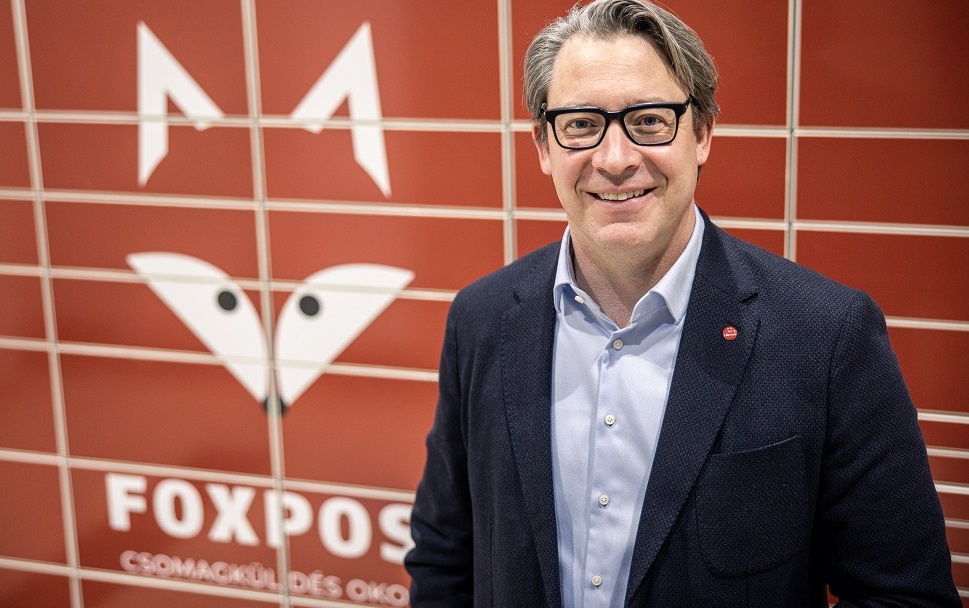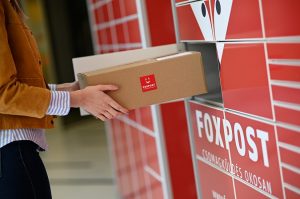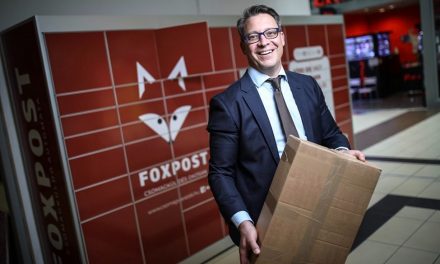
The key to disruption is going the extra mile

Building a huge network of lockers is not enough anymore. If you want to grow your parcel business, you’d better have the whole package in your own hands: the infrastructure, the technology and the superior market experience. That’s what makes you attractive for both your users and your partners.
Post & Parcel speaks to Ádám Bengyel, CEO and co-founder of Foxpost, Hungary’s most popular parcel locker company.
Foxpost was founded 8 years ago as a locker company. How would you describe your business now, in 2023?
We are still a locker company, but not a traditional one. Our business reaches far beyond the good old last mile market. In the last 10 years we intensively expanded our services into the logtech domain and built our own parcel locker ecosystem. A system that not only serves our own customers, but also of the B2B logistic market. I am proud that today we not only have an extended locker network in Hungary, but also our own software technology that makes it work.
Why does a parcel company have to begin with software development?
There is no such thing as parcel logistics in itself anymore. Just look at all the industries changing around us: successful companies from the automotive to the banking sector are becoming IT companies to serve new demands of their markets. Think about mobile applications or hardcore backend infrastructure behind a parcel locker network. If we want to offer real customer experience for our users, especially the young ones, we have to go digital and we would rather do it ourselves. It took many years and a lot of hard work to transform Foxpost from a parcel firm to a logtech company, but we did it.
What type of user experience can your logtech developments offer?
Our technology ensures smooth operation: when things are working just the way they are expected by the users. Machines can get stuck, that’s in their nature, but we are always reacting quickly. Our lockers are monitored remotely and our service team can sort most problems within 36 hours. Our network should never freeze. However, we have never been satisfied with doing what was expected.
What do you focus on when building the Foxpost experience?
We offer a range of convenience solutions that make our users happy. When they place an order, they just look at the occupancy of our lockers: they are listed as either red, amber or green – showing varying degrees of saturation and showing the potential effect on the speed of their delivery. Also, customers not only receive emails to update them on the progress of their parcel they also get Viber message and text messages, and they can also track the delivery status online. But what they are most happy about is our label-free returns.
 Why do you think your return service appeals to your customers?
Why do you think your return service appeals to your customers?
We offer three types of return solutions for unwanted purchases and our customers can decide what is the best for them.
But the most popular option is the label-free return. When customers want to return their package immediately, they just have to scan a QR code sent to their phone at their nearest locker and place their unwanted purchase into the box. They don’t have to mess around with printed or hand-written address labels which they really appreciate. And the environment benefits too.
Speaking of environment, what is your philosophy on green delivery?
With Foxpost we are building a green business which means sustainability infuses everything we do. However, that only works if our customers are environmentally conscious as well. And they are. What we have achieved in that aspect is determined by our customers desire to purchase in the greenest way possible.
From the start we could see e-commerce taking off even at a time when people were only making a few purchases online, but we also recognised that the traditional last mile is not sustainable for the long run. From 2013 it became obvious that parcel lockers created less of a carbon footprint compared to delivering to individual houses and they were so much more efficient cost-wise. This also translated very well to our investors as they could see the potential to make more money.
What do you think attracts investors to Foxpost?
I think it is about our approach to locker logistics. Our system is designed for the future. We developed both our software and hardware to meet the needs of a user-friendly locker system in the first place which means it is not a refurbishment of a traditional logistics network. If you like, we have skipped a few evolutionary steps that others have gone through.
Foxpost’s infrastructure now serves both the needs of consumers born into the digital domain and our B2B partners. We pretty much know our way around consumer-friendly apps,multi-channel tracking and API integration or real-time capacity forecasting. That’s what makes us interesting to investors and industry partners.
Since the pandemic there has been a huge amount of investment into parcel lockers due to the surge of e-commerce. When we started out in 2015 there were 350 parcel lockers in Hungary in total and now there are 3,500. And their popularity is growing rapidly. About a year ago the figures showed 90% parcel volume went to home delivery while 10% went to PUDO and Parcel lockers. However, results from the last quarter of 2022 showed it had increased to 20% parcel lockers and PUDO and 80% home delivery.
How do you plan to build on that boom in the long term?
With continuous reinvention of locker logistics. We keep on developing our systems and innovating our services which our customers really appreciate. Foxpost consistently maintains an exceptionally high 80+ NPS score by end-users and was voted best logistics service provider by e-tailers for 7 consecutive years. We are never satisfied with just achieving one milestone, we never rest. That is the thing about disrupting the last mile, you always have to go one extra to stay ahead of the competition.







